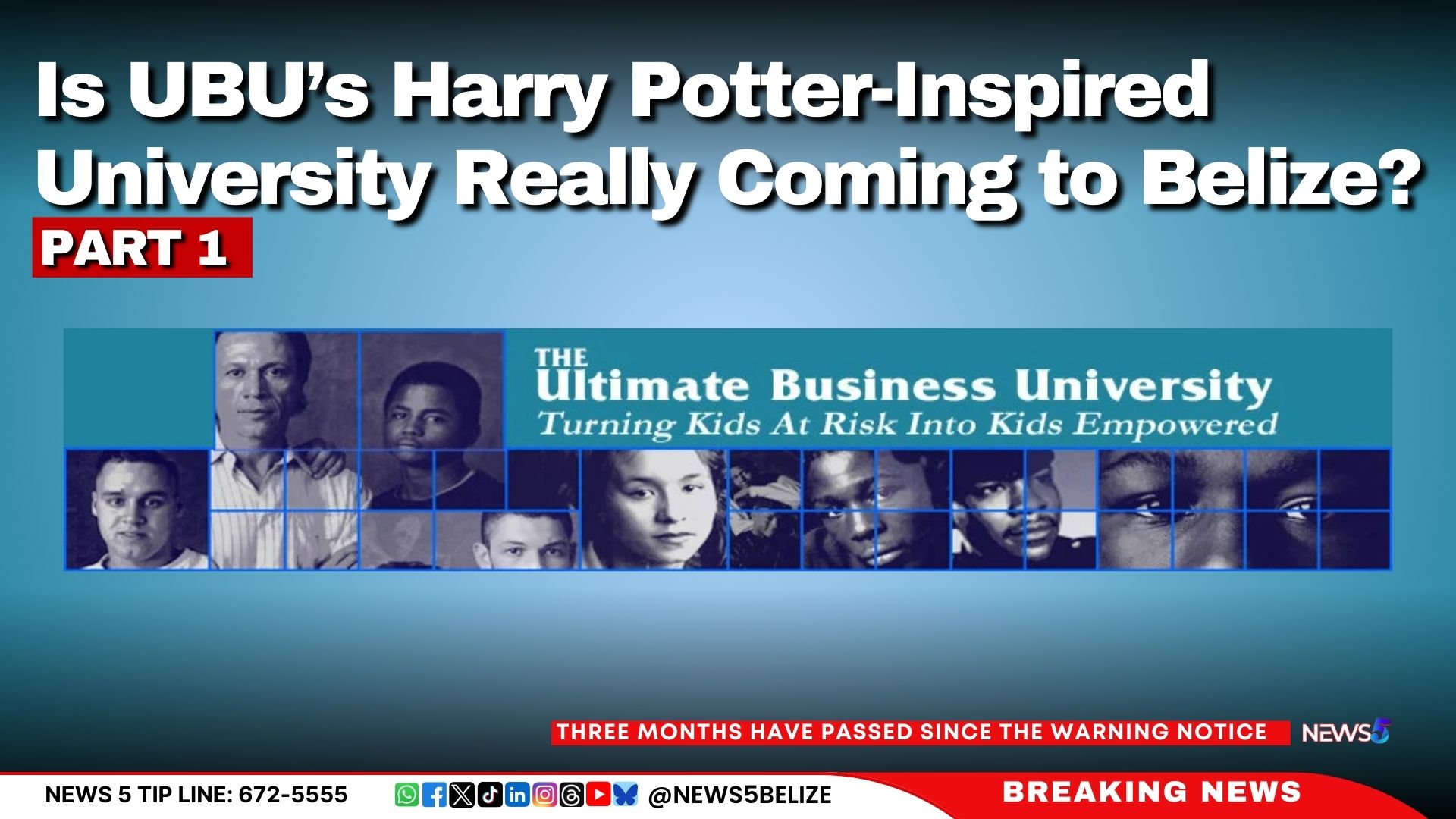A university nearly three times the size of Belmopan, the capital of Belize, is proposing to build a Harry Potter-inspired campus on Belizean soil.
According to its website, the Ultimate Business University (UBU) envisions a sprawling campus that will feature 3,000 student rooms, 300 rooms for teaching assistants, and 835 employee bungalows.
UBU’s proposed campus layout would feature 280 acres designated for manufacturing, 2 acres for wellness centres, a golf course, a 120-acre vineyard, and over 1,500 acres of farmland meant to cultivate vegetables, hemp, gluten-free lupin beans, and even cacao. All of this and more would sit within a 20,000-acre Hogwarts-like university campus.
While this ambitious project may seem like a major investment, UBU claims on its website that it “will become self-sustainable within 3 to 5 years by generating more than $100 million through programmes such as our Dive Programmes, Dance, Art and Caribbean Music Festivals, agricultural production as well as honey, cocoa, coffee, clothing and many other products we will manufacture.”
According to UBU, this plan is achievable because “students will launch their own business within the first 30 days of being on campus.” The university would start its operations with 1,000 students, which would be the equivalent of 1,000 businesses launching within the first month.
Of those first 1,000 students, it’s likely that none will be Belizeans because the founder made it clear that this project is not intended for locals.
According to the founder, UBU is an “educational programme for kids who are living on the streets in the U.S.” The founder claims the university will offer full scholarships and relocate U.S. students who are “emancipated by a judge and moved to Belize.”
This focus on U.S. students may be disheartening for Belizean students who dream of attending a state-of-the-art university without leaving the country. However, UBU argues that its presence in Belize would still benefit the local community by creating thousands of jobs.
Despite the grand plans, the project has remained in limbo for a long time. It still has yet to secure the proper paperwork and official recognition. On January 28, Belize’s Ministry of Education (MOE) issued a warning notice regarding UBU. The MOE stated that it “wishes to inform the general public to exercise caution regarding an entity named ‘The Ultimate Business University’, which claims to be registered as an educational institution operating within Belize.”
The ministry added in its notice that “this institution is neither legally registered nor authorised to operate as an educational institution in Belize and that it has no official affiliation or recognition from the Ministry of Education.”
Over 2 months have passed since the warning notice, and UBU has not yet made any official statements on its social media platforms or website addressing the issue.
The website remains active and accessible for anybody to learn more about it, but with no official recognition from the MOE, the question hanging here is whether this dream university is real or if it is too good to be true.
Part 2 coming soon.
